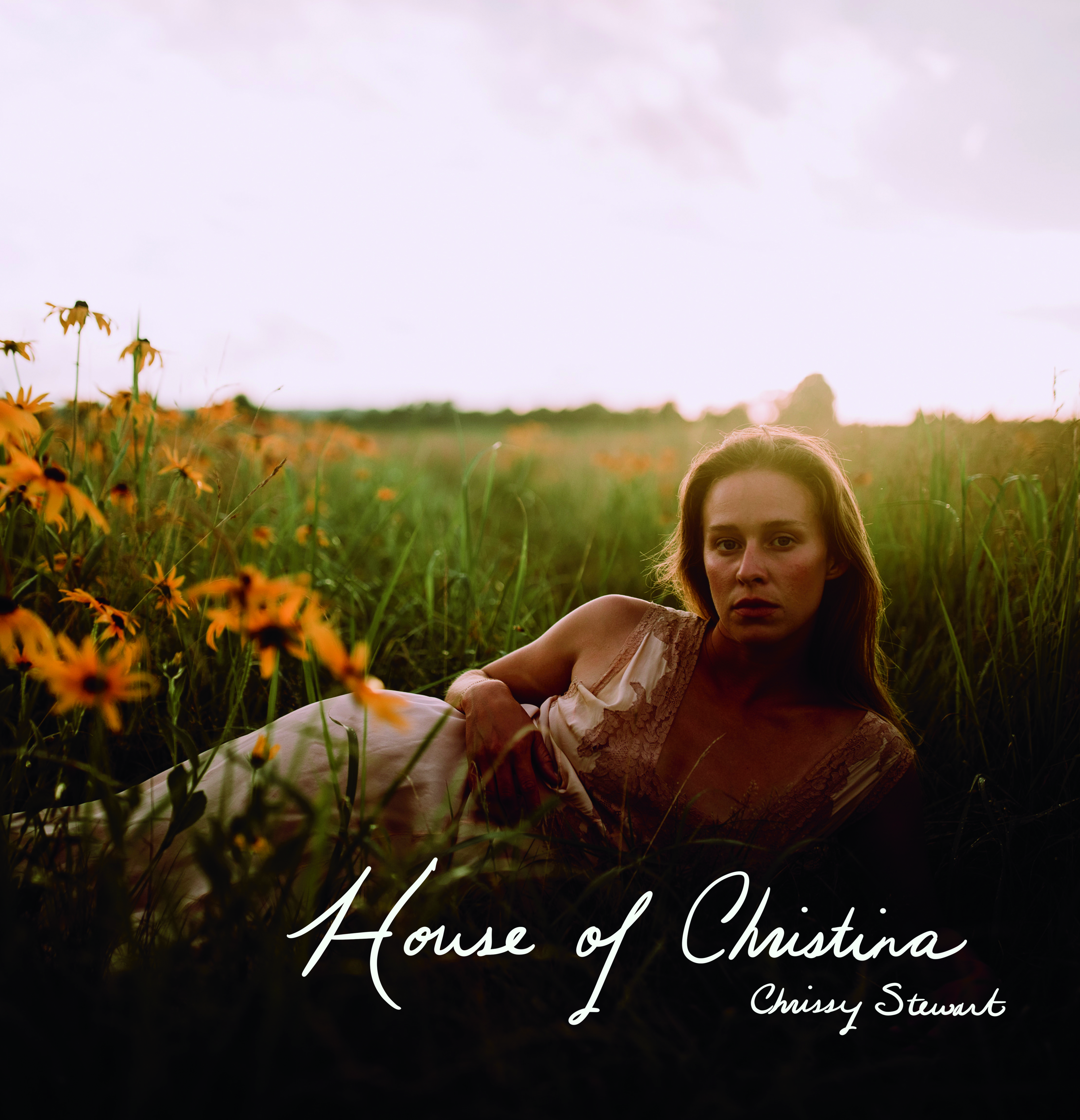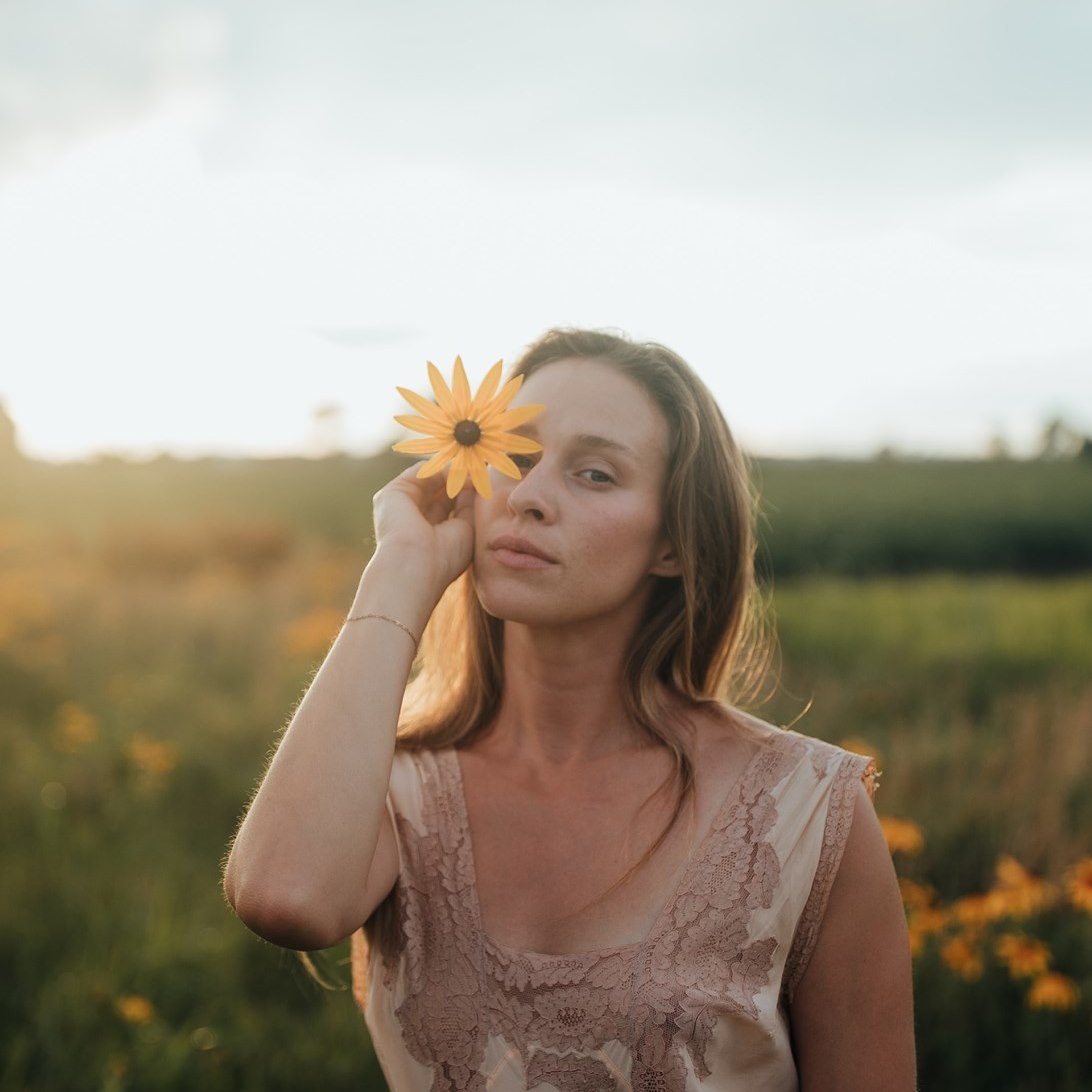
Every week, we’re here to remind you of the local artists we love and think you oughta know.
When we say “You Oughta Know,” we mean it. Although our signature series, this is the perfect title to introduce Chrissy Stewart as a musician and person. I met Chrissy when we worked at the Wildwood Revival music festival in Athens, Georgia last year. Not only has she become a dear friend, but she has shown me how hospitality, friendship, and music come together to build community.
Chrissy’s debut album House of Christina was released in July of this year. Recorded with Providence musicians John Faraone (drums), Matt Murphy (bass), and Jonah Tolchin (guitar) in a house in Jamestown, RI, the album is based on the experience of stumbling upon her childhood home. Whether being the resident crash pad for touring musicians, programming events at the Good Will Engine Co., or running PVD Live, Chrissy’s projects unite people in spaces to share stories through art and friendship. This is her first declaration as such musically.
Known for bringing music to stages around Providence on the production side, she explains that this album doesn’t mean she’s only a musician now. The way she cultivates live music remains fluid through production and performance, forever revolving around and grounded by the stage.
House of Christina is a declaration of love and friendship about and for the important people in her life. Friends and family responded in awe, not knowing that Chrissy sings and has been doing so for years. That’s Chrissy for you. Her style is reflective of the many sounds and performers that filled her soul and ears from backstage. Each song on the album has its own energy and character, serving as love notes to her loved ones. “Preacher’s Daughter” shares the story of her father who was a preacher and passed away, “He left so early never meant to grow old / I never got a chance to say goodbye / Taught me to cherish every moment in time.” After singing “Forever in Debt” to her mother, she didn’t care if the album was a flop after that. It was all worth it just to share that moment with her mother. The songs move beyond those moments, broadening the sense of home through Stewart’s life experiences and the characters of her tales.
With House of Christina, rather than taking the microphone to introduce a show’s lineup, she introduces herself.
Allston Pudding: What is it like for you to transition from being backstage to front stage, at least in this project?
Chrissy Stewart: It’s a long walk from the side to the middle. It’s very hard once you have that role for your own self and for people who know you in such a specific job to break those norms. There are pros and cons. The pros are that I absorb so many genres from being around so many creative people and music. I’ve been booking live music and working in production for about ten years. Once you start performing it’s hard to get up on stage. It’s a very weird thing to hear your voice amplified in a mic, which I’ve been able to practice and get comfortable with through emceeing and introducing musicians. I was able to get comfortable in that environment.
It’s not like now I’m a musician and was a production manager. I’m still very much both. Some creators are creators, and have a hard time going into a place of business. The fun part is writing the music but there’s so much else logistically. It’s good to exercise that muscle.
I remember coming home when I was living with friends and said, “I’m going to book myself this month.” That was my first show ever. People didn’t even get what I was saying, I had to clarify I’m going to book me, singing! They were like, “uh? I didn’t know you sang!”

Photo by Sarah Petrarca
AP: I know you were working on songwriting and practicing guitar, how did the learning and doing phase coincide?
CS: The learning came a little naturally for me. I’ve always been a writer, that was my creative outlet. The first song I wrote came to me from a conversation with a friend about my dad and it turned into “Preacher’s Daughter.” It was the only song I had for a while. The way it comes through is a capella, this tempo that’s in my head. I would sing it to a friend and they would put some chords to it. That was like 6 or 7 years ago. I don’t know if my process would ever go into a typical style or form, it just comes in a sentence and a rhythm, and then builds from there.
AP: Each song has its own character; There are so many styles and genres wrapped up in the album.
CS: They reflect all my different personalities, too! With “Dissolve,” I was listening to a lot of Sade that year. “Tired Heart Talking” and “Truth of Your Love” were created in the same sitting. “Remember When” was the first song where I doubted if it matched my relaxed style. It does break the album up well and it is such a friend anthem. Every different lyric is something I experienced with a friend—a tribute to all my dreamer friends. The influence comes from different inspirations from booking. I do a lot of folk and americana but book hip hop, jazz, other music too. The musicians on the album are also people I’ve worked with in the past in production.
AP: Is the narrative mostly auto-biographical, imaginative, or both?
CS: Definitely autobiographical. House of Christina is inspired by the story of stumbling upon the childhood home but also a metaphor of welcoming people into my home of life experiences. I don’t know if I can write about something that isn’t personal just yet. I’ve always been open to sharing my story. I’ve learned so much about how that allows me to be empathetic towards others. As a preacher’s daughter, I grew up in a household of sharing stories—my dad did that as his job with sermons.
I’m used to that. I remember being on tour with Lucinda Williams and the tour manager Matt Blake, who brought me on, also had that weird line of production and wanting to be a musician. He was like, “It makes sense we’re natural performers, in a way, of sharing stories and being on stage.” His father was a pastor and also passed away. Lucinda’s father was a famous poet. I was in that booth watching these musicians and people as a model of life. Sharing stories is just a part of it.
AP: What’s the visual identity of the album?
CS: It was a wild how that came together. The album art ties it all together. We built the album art once COVID hit, when there were no photoshoots happening. So I picked an old photo from days when I did some modeling. I landed on something and wasn’t that content, and thought, maybe you never feel completely content with something so big as a first album. I accepted that.
A year ago I called my uncle in CA (who I’ve never met, but we’re pen pals). He told me that the album reminded him of the painting “Christina’s World” by Andrew Wyeth. I loved the painting, but didn’t think there was a way to connect it to the album. But he was very adamant about it and called me a year later with the same thought. Before the album art was finalized, my friend Sarah Petrarca asked me to do a sunset photoshoot for fun. She had me lay in a field and shot a picture that night. When I saw it, I thought, ‘holy shit that’s it.” We hadn’t finalized the original art so we switched it out to this shot last minute. It wasn’t until a week later that Christina’s World came back into my mind, and I thought, ‘holy shit!! “Christina’s World”!!’ She’s wearing a light pink dress, I was wearing a light pink dress. It looks like there’s a house in the back of my image which is like the painting too. I went into a deeper rabbit hole and found out Wyeth was 31 when he painted it and I’m 31. It was so trippy.”
AP: Hospitality, sharing space, and creating homes for people is a huge part of all you do. Can you speak to how your passion for hospitality relates to the album?
CS: It almost adds a third dimension. There’s a metaphor of welcoming someone into your home. And then there’s the childhood home story. Then I’ve always been accommodating, you know, I was the crash pad for musicians when I lived at the Grove. I think it stems from my parents doing a similar thing in hosting a lot of people back when we were kids. That’s something I love to be a part of creating. A sense of community.
AP: What was it like to share it with your family?
CS: Oh man, it’s funny. I don’t really talk about things until I’m doing them. I said, “Mom, I’m going to make an album,” and she said, “I didn’t even know you sang.” She knows I’m a writer and said, “You’ve always had a way with words and it’s so cool to see it in music.” It means so much to my family [that I’m] doing something for my dad, who passed away, and for my mom.
AP: What’s next?
CS: I don’t feel like I need to go on to the next one or get another album done and be the “musician” now. I’m finding rest in the creation and trying to enjoy the fruits of my labor. There are some singles that I’ve been brewing. Whenever I have something to say, that’s when the music will come.
Listen to House of Christina below via Bandcamp.
